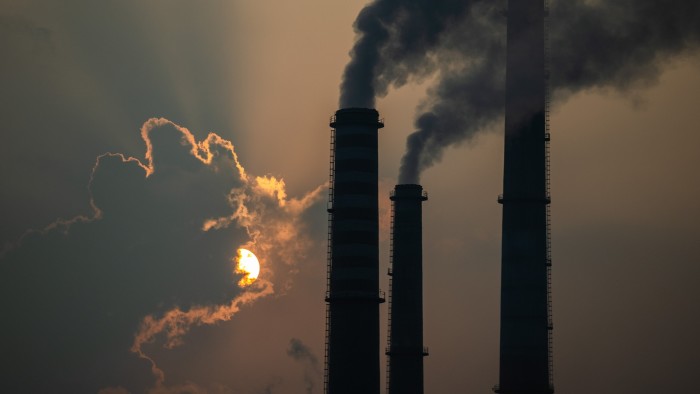Stay informed with free updates
Simply sign up to the Climate change myFT Digest — delivered directly to your inbox.
Record-high greenhouse gas emissions are set to exhaust the planet’s “carbon budget” within three years, passing another ominous milestone that would minimise the chance of limiting warming to 1.5C, scientists have said.
The carbon budget represents the maximum amount of greenhouse gases that can be emitted to still have a 50 per cent chance of keeping warming to the 2015 Paris Agreement’s goal of 1.5C above the pre-industrial level.
That target looked increasingly out of reach, said Joeri Rogelj, a climate science and policy professor at Imperial College London and co-author of a study by a team of more than 60 international scientists published in the journal Earth System Science Data.
“Under any course of action, there is a very high chance we will reach and even exceed 1.5C and even higher levels of warming,” Rogelj said. “We are currently already in crunch time for higher levels of warming.”
The level and rate of global warming recorded in 2024 were unparalleled, the study found, as the pace of climate action failed to keep up with surging emissions.
The UN Intergovernmental Panel on Climate Change said in 2021 that the remaining carbon budget was 500bn tonnes of CO₂. But the study found the headroom had fallen to 130bn tonnes this year. The Paris accord set down a limit for global temperature rise of well below 2C and ideally of 1.5C.
The research showed how far and fast climate indicators were “going in the wrong direction”, said Piers Forster, director of the Priestley Centre for Climate Futures at the University of Leeds and lead author of the study.
“Countries are beginning to take action on climate change. We are seeing lots of renewable energy being built, but the pace of those changes does not really match the pace of what needs to be done,” he said.
The paper, which looked at 10 indicators of climate change, was released as countries met in Bonn in Germany for the latest UN climate talks, where the US was a no-show. President Donald Trump, who previously called climate change a hoax, has pulled the US from the Paris Agreement.
The annual study aims to fill the gap between the publication of reports from the IPCC. The next big IPCC reports are not due until 2029.
The scientists estimated that the average global temperature over the decade to the end of 2024 was 1.24C above the pre-industrial level, with human-caused warming accounting for 1.22C, driven primarily by deforestation and burning fossil fuels.
The rate of global heating seen between 2012 and 2024 had doubled from the levels seen in the 1970s and 1980s, the scientists said, adding this was causing sea level rise, ocean warming, ice loss and permafrost thawing.
The researchers also warned a rapid jump in sea level rise was leaving coastal areas increasingly vulnerable to storm surges and coastal erosion.
“The concerning part is that we know that sea level rise in response to climate change is relatively slow, which means that we have already locked in further increases in the coming years and decades,” said Aimée Slangen, of the NIOZ Royal Netherlands Institute for Sea Research.
